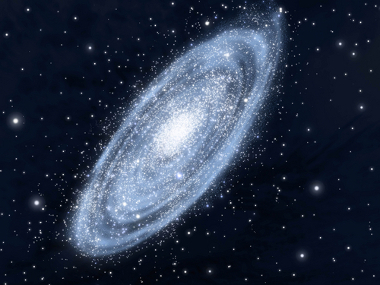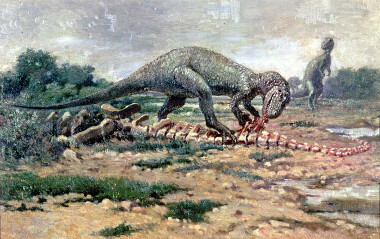O cosmic calendar is a didactic time scale elaborated by the American scientist Carl Sagan (1934-1996), whose objective was to summarize or metaphorically abbreviate in one year the entire history of the universe, from the beginning of the Big Bang to the present day.
On the time scale elaborated by Sagan, each second of the cosmic calendar is equivalent to 500 real years. This means that Pedro Álvares Cabral, within that scale, would have arrived in Brazil practically at the beginning of the last second of December 31st. Thousandths of seconds before, the capitalist system was also born.
The famous explosion of Big Bang, which, according to his theory, would have started everything that is found in the universe, marks the first moment of the cosmic calendar, which helps us to understand, in proportional terms, how long certain phenomena in the universe – such as the formation of galaxies and even the origin of the Earth – took to happen. Below, you can check the main events present and registered by the calendar:
|
January 1st - beginning of big Bang January 7th – birth of the first stars March 1st – emergence of the Milky Way and others galaxies September 9th - origin and formation of the Solar system September 14 – Origin of the Earth September 25 – emergence of the first forms of terrestrial life October 2nd – formation of the oldest rocks ever recorded November 30 – beginning of sexual reproduction |

Our galaxy, the Milky Way, appeared in early March of the cosmic calendar.
The month of December, in turn, deserves more detail, as it was in it that most of the most important events on Earth took place, including the rise of man and the formation of the first civilizations.
|
December: 01 - constitution of the current atmosphere 16 – formation of the first helminths (worms) 17 – Biological Big Bang: formation of a large number of living beings in the Cambrian 18 – Formation of the first vertebrate living beings 25 – Origin and Kingdom of Dinosaurs 26 – Origin of the first mammals 28 – Formation of the first birds 30 – Dinosaur extinction |

The “kingdom” of the dinosaurs would have lasted five days of the cosmic calendar
December 31st also deserves a new expansion of detail, as it is there that all recent events took place:
|
December 31th: 22:30 – The first humans 23:46 – Learning about the domestication of fire 23:56 – End of the last glacial period 23:59 – Date of prehistoric paintings in Europe 23:59:20 – Agricultural development 23:59:35 - Beginning of the Neolithic 23:59:50 – Emergence of the first great civilizations 23:59:58 – Carrying out of the Crusades in the Low Middle Ages 23:59:59 – Beginning of commercial capitalism and European colonial expansion. |

The formation of the first civilizations and everything that followed took place in the final seconds of the cosmic year.
By Me. Rodolfo Alves Pena
Source: Brazil School - https://brasilescola.uol.com.br/geografia/calendario-cosmico.htm
